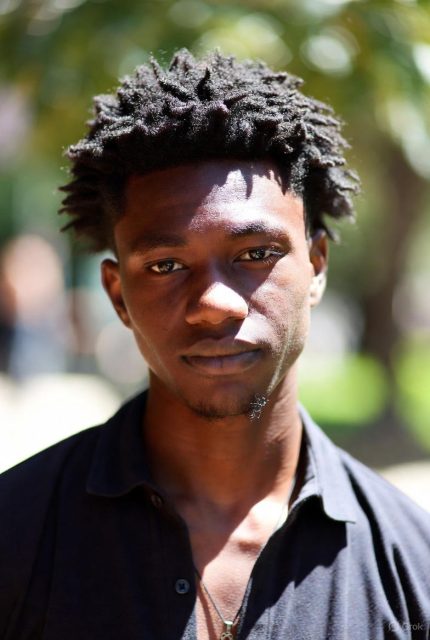Top Nursing Schools in the U.S. for African Students. As an African student dreaming of a nursing career in the U.S., I know the excitement of studying abroad comes with big questions: Which school is right for me? Can I afford it? And how can I support myself while studying?

I’ve been there, pouring over program details and crunching numbers, so let’s make this journey easier together. Below, I’ve compiled an extensive list of top U.S. nursing schools ideal for African students, grouped by affordability.
Each includes what makes them stand out, tuition and living costs, and part-time job opportunities for international students on an F-1 visa. My goal is to help you find a program that feels like home while setting you up for success in nursing.
Why Study Nursing in the U.S. as an African Student?
The U.S. is a global leader in healthcare education, offering cutting-edge nursing programs and a growing demand for nurses (9% job growth projected through 2030, per the Bureau of Labor Statistics). For African students, studying here means access to advanced medical technology, diverse clinical experiences, and a chance to shine in a multicultural healthcare system.
Your bilingual skills—whether French, Swahili, or Yoruba—can make you a standout in patient care. Plus, working part-time on an F-1 visa (up to 20 hours per week during school terms) can help offset costs while building your resume. Let’s dive into the top schools, their costs, and job options in their cities.
Expensive Top Nursing Schools For African Students
These prestigious schools have higher tuition and living costs due to their urban locations or private status, but they offer world-class training and robust support for international students.
1. Johns Hopkins University – Baltimore, Maryland
- Why It Stands Out: Ranked #1 by U.S. News & World Report for 2025, Johns Hopkins School of Nursing is a global leader in healthcare education. Its state-of-the-art simulation labs and partnerships with Johns Hopkins Hospital provide unmatched clinical exposure. The school’s diversity initiatives, including cultural sensitivity training and an international student office, make it welcoming for African students. Baltimore’s vibrant African community adds to the home-away-from-home vibe.
- Program Highlights: Offers Bachelor of Science in Nursing (BSN), Master of Science in Nursing (MSN), and Doctor of Nursing Practice (DNP). The accelerated BSN for non-nursing degree holders takes 13–16 months. Emphasis on global health suits students passionate about healthcare disparities.
- Tuition and Fees: ~$62,500/year for BSN; MSN ~$45,000–$60,000/year. Books and supplies ~$2,500/year.
- Living Expenses: Baltimore’s cost-of-living index is 81.7, below the national average. Expect $12,000–$18,000/year for housing (e.g., $1,200/month for a shared apartment), food, and transportation.
- Financial Aid: Merit-based scholarships and need-based grants available for international students. Private loans and work-study programs offered, though FAFSA is unavailable for non-residents.
- Part-Time Jobs for F-1 Students in Baltimore:
- On-Campus Jobs: Research assistant or library aide (~$15–$20/hour). Johns Hopkins offers work-study roles in administrative offices or labs.
- Retail/Food Service: Barista or cashier at nearby cafes like Starbucks (~$14–$17/hour). Common in Charles Village near campus.
- Tutoring: Peer tutor for nursing or language skills (~$15–$25/hour). Demand for bilingual tutors (e.g., French, Swahili) is high.
- Restrictions: F-1 students can work up to 20 hours/week on-campus during terms; off-campus work requires Curricular Practical Training (CPT) approval after one academic year.
2. University of Pennsylvania – Philadelphia, Pennsylvania
- Why It Stands Out: Ranked #2, Penn Nursing is known for its innovative curriculum and global health focus. Partnerships with top hospitals like the Hospital of the University of Pennsylvania offer diverse clinical placements. The Office of Global Health provides mentorship and cultural programs, making it a great fit for African students.
- Program Highlights: BSN, MSN, and DNP programs with specialties like pediatric nursing. Study-abroad options align with international perspectives.
- Tuition and Fees: ~$59,000/year for BSN; MSN ~$48,000–$55,000/year. Books and supplies ~$2,000/year.
- Living Expenses: Philadelphia’s cost-of-living index is ~100. Expect $15,000–$22,000/year for housing (e.g., $1,500/month for a shared apartment), food, and transit.
- Financial Aid: Limited scholarships for international students, but Penn offers payment plans and private loan guidance. Hospital sponsorships post-graduation are possible.
- Part-Time Jobs for F-1 Students in Philadelphia:
- On-Campus Jobs: Administrative assistant or student services aide (~$12–$18/hour). Penn’s library and student centers hire frequently.
- Food Service: Server or cashier at campus dining halls or nearby eateries (~$13–$16/hour, plus tips).
- Campus Tour Guide: Share Penn’s campus with visitors (~$15–$20/hour). Ideal for outgoing students.
- Restrictions: On-campus work only during the first year; CPT required for off-campus roles like healthcare internships.
3. University of California, San Francisco (UCSF) – San Francisco, California
- Why It Stands Out: UCSF’s School of Nursing (#3 ranking) excels in advanced practice roles like nurse practitioner training. Its focus on health equity resonates with African students passionate about underserved communities. The international student office offers visa support and cultural events.
- Program Highlights: MSN and DNP programs (no BSN) with specialties in psychiatric nursing and gerontology. Strong research and advocacy focus.
- Tuition and Fees: ~$47,000/year for MSN; DNP ~$50,000–$60,000/year. Books and supplies ~$3,000/year.
- Living Expenses: San Francisco’s cost-of-living index is 117.4, one of the highest. Expect $20,000–$30,000/year for housing (e.g., $2,000/month for a shared apartment), food, and transit.
- Financial Aid: Limited scholarships, but UCSF connects students to external funding like the African Women’s Public Service Fellowship. Work-study available.
- Part-Time Jobs for F-1 Students in San Francisco:
- On-Campus Jobs: Lab assistant or data entry clerk (~$18–$25/hour). UCSF’s medical research facilities hire regularly.
- Retail: Sales associate at nearby stores like Target (~$16–$20/hour). High demand in Union Square.
- Language Tutor: Teach French or African languages online or in-person (~$20–$30/hour). Popular in diverse SF communities.
- Restrictions: On-campus work limited to 20 hours/week; CPT needed for off-campus healthcare roles.
4. New York University (NYU) – New York, New York
- Why It Stands Out: NYU’s Rory Meyers College of Nursing (#4) is in vibrant NYC, with a 20% international student body and African student organizations. Its simulation labs and partnerships with NYU Langone provide top-tier training.
- Program Highlights: BSN, MSN, and DNP programs with global health tracks. Accelerated BSN takes 15 months.
- Tuition and Fees: ~$58,000/year for BSN; MSN ~$50,000/year. Books and supplies ~$2,500/year.
- Living Expenses: NYC’s cost-of-living index exceeds 200. Expect $25,000–$35,000/year for housing (e.g., $2,500/month for a shared apartment), food, and transit.
- Financial Aid: Merit-based awards and private loan options available. Hospital sponsorships post-graduation are common.
- Part-Time Jobs for F-1 Students in New York:
- On-Campus Jobs: Library assistant or event staff (~$15–$20/hour). NYU’s student centers are hiring hubs.
- Retail/Food Service: Barista or cashier in Greenwich Village (~$15–$18/hour, plus tips).
- Student Ambassador: Promote NYU at events (~$16–$22/hour). Great for networking.
- Restrictions: On-campus only in year one; CPT required for off-campus roles like clinic assistants.
5. University of Washington – Seattle, Washington
- Why It Stands Out: Ranked #5, UW’s School of Nursing offers research-driven training and partnerships with Harborview Medical Center. Its diversity initiatives and international student office provide cultural workshops and visa support.
- Program Highlights: BSN, MSN, and DNP programs with community health focus. High NCLEX pass rates.
- Tuition and Fees: ~$40,000/year for out-of-state/international BSN; MSN ~$45,000/year. Books and supplies ~$2,000/year.
- Living Expenses: Seattle’s cost-of-living index is 116.2. Expect $18,000–$25,000/year for housing (e.g., $1,800/month for a shared apartment), food, and transit.
- Financial Aid: Limited scholarships, but work-study and external grants like Gates Millennium Scholars are accessible.
- Part-Time Jobs for F-1 Students in Seattle:
- On-Campus Jobs: Research aide or IT support (~$16–$22/hour). UW’s labs and libraries hire frequently.
- Food Service: Barista at campus Starbucks (~$15–$18/hour, plus tips).
- Tutoring: Academic or language tutoring (~$20–$30/hour). High demand for bilingual skills.
- Restrictions: On-campus work only initially; CPT needed for off-campus roles.
Affordable Top Nursing Schools
These public or lower-cost private schools offer excellent education at budget-friendly prices, often in less expensive cities, making them ideal for cost-conscious African students.
1. Stony Brook University – Stony Brook, New York
- Why It Stands Out: A top 20 program, Stony Brook’s School of Nursing is a public institution with affordable tuition. Its RN-to-BSN program suits students with prior credentials, and the diversity office supports African students with mentorship and events.
- Program Highlights: BSN, MSN, and DNP programs. Accelerated BSN takes 12 months. Strong NCLEX prep.
- Tuition and Fees: ~$2,785/semester (~$5,570/year) for out-of-state/international BSN; MSN ~$15,000/year. Books and supplies ~$1,500/year.
- Living Expenses: Stony Brook’s cost-of-living index is ~100. Expect $12,000–$18,000/year for housing (e.g., $1,200/month for a shared apartment), food, and transit.
- Financial Aid: Merit-based scholarships and external grants available. Work-study options offered.
- Part-Time Jobs for F-1 Students in Stony Brook:
- On-Campus Jobs: Library clerk or lab assistant (~$14–$18/hour). Stony Brook’s hospital hires students.
- Retail: Cashier at nearby malls (~$13–$16/hour).
- Tutoring: Academic or language tutoring (~$15–$25/hour). Bilingual skills in demand.
- Restrictions: On-campus work only in year one; CPT for off-campus roles.
2. Lamar University – Beaumont, Texas
- Why It Stands Out: Lamar’s nursing program is highly affordable at $3,120/semester. Small class sizes and an international office offering visa and cultural support make it ideal for African students.
- Program Highlights: BSN and RN-to-BSN programs focused on rural healthcare. Strong clinical partnerships.
- Tuition and Fees: ~$3,120/semester (~$6,240/year) for out-of-state/international BSN. Books and supplies ~$1,200/year.
- Living Expenses: Beaumont’s cost-of-living index is 84.6. Expect $8,000–$12,000/year for housing (e.g., $800/month for a shared apartment), food, and transit.
- Financial Aid: Payment plans and Texas-based nursing grants available. Limited scholarships for internationals.
- Part-Time Jobs for F-1 Students in Beaumont:
- On-Campus Jobs: Administrative aide or bookstore clerk (~$10–$14/hour). Lamar hires regularly.
- Food Service: Server at campus dining (~$9–$12/hour, plus tips).
- Peer Mentor: Support new students (~$12–$15/hour). Ideal for community-focused students.
- Restrictions: On-campus only initially; CPT for off-campus work.
3. Oklahoma City University (OCU) – Oklahoma City, Oklahoma
- Why It Stands Out: OCU’s Kramer School of Nursing offers a private BSN at just $6,142/year. Its faith-based, supportive community and international office make it welcoming for African students.
- Program Highlights: BSN and MSN programs with holistic care focus. Strong hospital placements.
- Tuition and Fees: ~$6,142/year for BSN; MSN ~$12,000/year. Books and supplies ~$1,500/year.
- Living Expenses: Oklahoma City’s cost-of-living index is 85.4. Expect $8,000–$12,000/year for housing (e.g., $700/month for a shared apartment), food, and transit.
- Financial Aid: Merit-based scholarships and private loans are available. Hospital sponsorships are possible.
- Part-Time Jobs for F-1 Students in Oklahoma City:
- On-Campus Jobs: Library assistant or event staff (~$10–$14/hour). OCU’s small campus offers many roles.
- Retail: Sales associate at local stores (~$10–$13/hour).
- Tutoring: Academic or language tutoring (~$12–$20/hour). Bilingual skills valued.
- Restrictions: On-campus work only in year one; CPT for off-campus roles.
4. Florida State University (FSU) – Tallahassee, Florida
- Why It Stands Out: FSU’s College of Nursing is affordable with high NCLEX pass rates. African student associations and an international office provide cultural support.
- Program Highlights: BSN and accelerated BSN programs with community health focus. Simulation-based learning.
- Tuition and Fees: ~$7,000/year for out-of-state/international BSN. Books and supplies ~$1,500/year.
- Living Expenses: Tallahassee’s cost-of-living index is 87. Expect $9,000–$14,000/year for housing (e.g., $900/month for a shared apartment), food, and transit.
- Financial Aid: Payment plans and external grants like Florida Nurses Association scholarships available.
- Part-Time Jobs for F-1 Students in Tallahassee:
- On-Campus Jobs: Student services aide or lab assistant (~$12–$16/hour). FSU hires for campus roles.
- Food Service: Barista or cashier at campus cafes (~$10–$14/hour, plus tips).
- Tutoring: Academic or language tutoring (~$15–$20/hour). High demand for bilingual tutors.
- Restrictions: On-campus only initially; CPT for off-campus work.
5. East Carolina University (ECU) – Greenville, North Carolina
- Why It Stands Out: ECU’s College of Nursing is cost-effective with a focus on rural healthcare. Its international student services offer visa support and cultural programs.
- Program Highlights: BSN, MSN, and DNP programs with high NCLEX pass rates. Strong clinical placements.
- Tuition and Fees: ~$7,200/year for out-of-state/international BSN. Books and supplies ~$1,500/year.
- Living Expenses: Greenville’s cost-of-living index is 83.5. Expect $8,000–$12,000/year for housing (e.g., $700/month for a shared apartment), food, and transit.
- Financial Aid: Merit-based awards and North Carolina Nurses Association grants available.
- Part-Time Jobs for F-1 Students in Greenville:
- On-Campus Jobs: Research aide or library clerk (~$10–$14/hour). ECU Health hires students.
- Retail: Cashier at local stores (~$10–$13/hour).
- Peer Tutor: Academic or language tutoring (~$12–$18/hour). Bilingual skills in demand.
- Restrictions: On-campus work only in year one; CPT for off-campus roles.
Tips for African Students
- Financial Planning: Seek scholarships like the African Women’s Public Service Fellowship or external grants through the African Union. On-campus jobs can help cover living costs.
- Cultural Fit: Choose schools with African student associations (e.g., NYU, FSU) for community support. Cities like Baltimore and Philadelphia have vibrant African diasporas.
- Work Regulations: F-1 students can work on-campus up to 20 hours/week during terms (full-time during breaks). CPT allows off-campus work (e.g., healthcare internships) after one academic year, often tied to nursing clinical.
- Language Advantage: Your bilingual skills can boost job prospects, especially in tutoring or patient-facing roles in diverse cities like NYC or San Francisco.
- Post-Graduation: Optional Practical Training (OPT) allows 12 months of work in the U.S. Many nurses transition to H-1B visas or EB-3 green cards after completing your program.
Final Thoughts
Choosing a U.S. nursing school as an African student is about balancing quality, cost, and opportunity. Prestigious schools like Johns Hopkins and UCSF offer world-class training and urban job markets, while affordable options like Stony Brook and Lamar provide excellent education in budget-friendly cities.
Part-time jobs, from on-campus roles to tutoring, can ease financial pressures while building skills. Wherever you study, your compassion and unique perspective will shine in nursing—one patient at a time.








